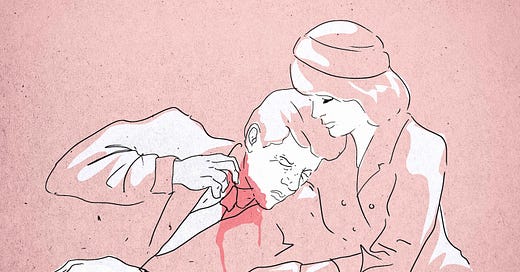My Conversation With Flemming Rose
Danish free speech advocate talks about new developments in the JFK story
JFK Facts contributor Ryan Carter helped prepare this article and translation.
When Flemming Rose asked me for an interview, I readily agreed.
I recalled his name as the Danish editor and free speech advocate who published a controversial series of cartoons about the Prophet Muhammad in the Copenhagen daily Jyland-Posten and other European newspapers in 2005. The series was intended to vindicate the important principle that a certain religion cannot claim to be sacrosanct in secular media, which I thought was a provocative way of making a sound point. (Most U.S. papers declined to participate.)
Our conversation was long and engaged, and Rose has written a good account of it. I hope a similarly incisive editor of a major news organization will soon publish a series of cartoons about Israeli apartheid. That would update Rose’s point from 2005 for today’s news cycle (and those “free speech” advocates who seem to have forgotten it).
Rose published this article in his publication Frihedsbrevet (The Freedom Newsletter). It is reprinted here in its entirety, with very light editing on the translation. (Translation by Google)
Keep reading with a 7-day free trial
Subscribe to JFK Facts to keep reading this post and get 7 days of free access to the full post archives.



